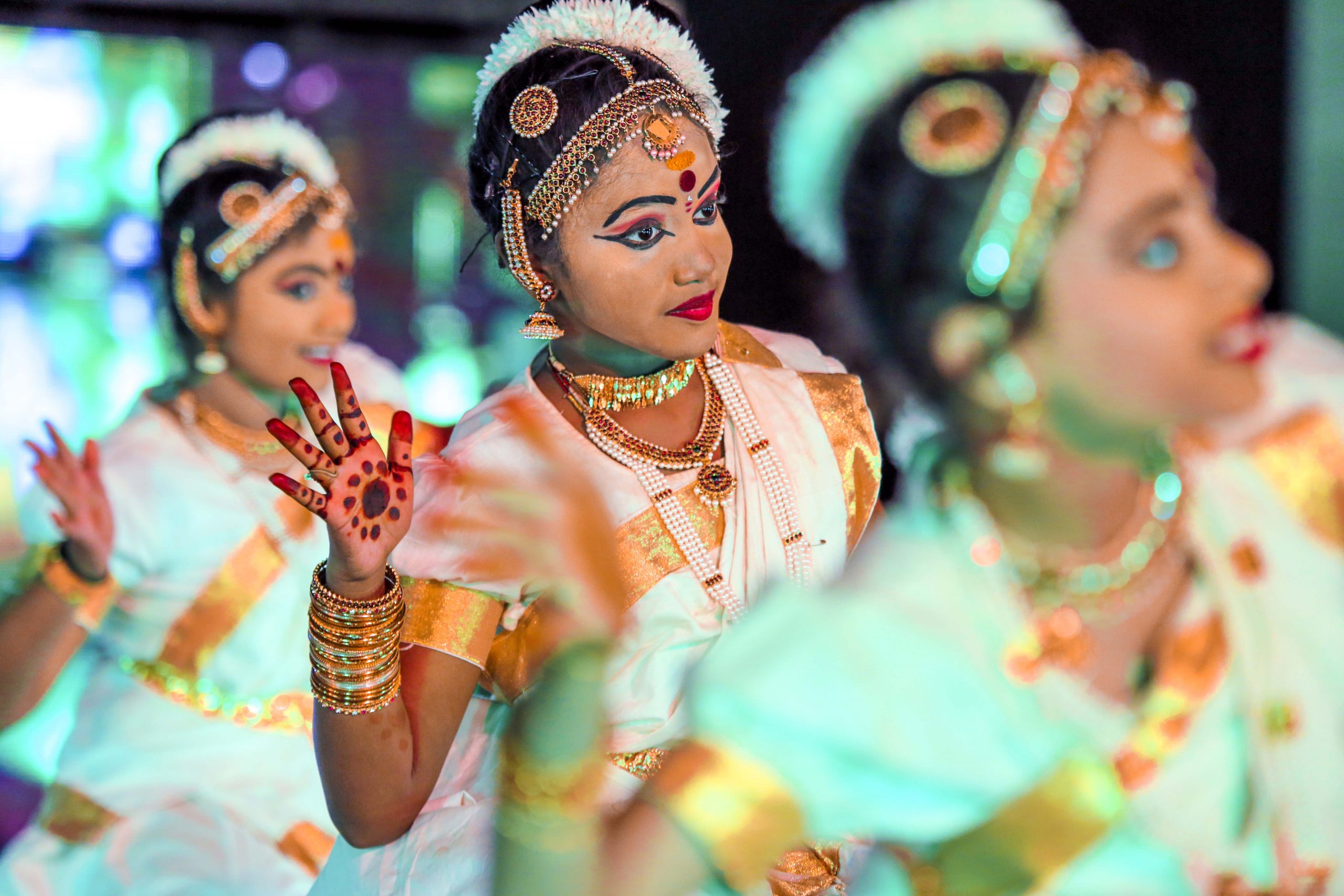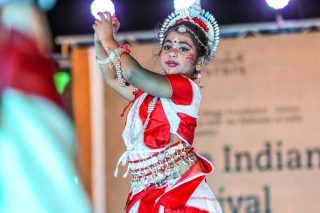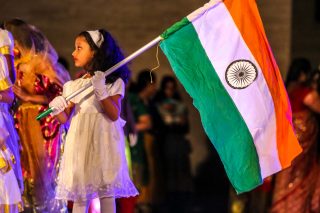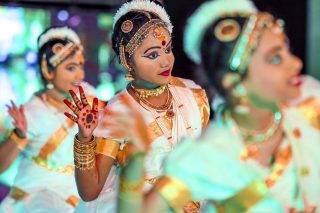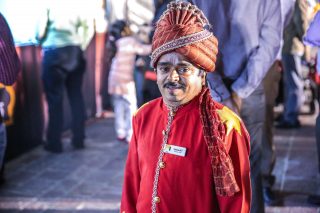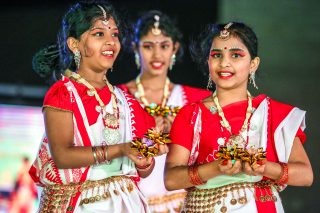All photos by Chantelle d’Mello
More than 600 performers dressed in colorful salawar, lehengas, and saris will take to the stage to entertain crowds with bhangra, bharatanatyam, and kathakali dances as the second Indian festival – a two-day extravaganza showcasing music, art, food, and dance from the country’s 28 states – comes to a close tonight.
Thousands of local residents, primarily from the 500,000-strong Indian diaspora here, attended last night’s opening of A Passage to India at the Katara Cultural Village.
Young children and adults took to the amphitheater stage to perform dance routines, musical numbers and skits. Meanwhile, a large handicraft and food bazaar was held on the esplanade.
The event, now in its second year, is organised by Indian Cultural Center (ICC) – a body dedicated to promoting Indian arts and culture under the patronage of the Indian Embassy – in conjunction with Katara.
Speaking to Doha News, ICC President Girish Kumar said that the event aimed to highlight the bond between India and Qatar and bring a piece of home to the large local Indian community.
“The first edition of the event was held in November 2013 at the Museum of Islamic Art. The idea then was to promote Indian culture, and showcase the decades-long bond that Qatar and India share.
The rupee was used here, trade routes used to come here; these two countries share a long and rich heritage, and we wanted to celebrate that.
In bringing together dances, music, and food from the 28 different states, we’re aiming to recreate a little India to Indians overseas in Qatar,” he said.
India Gate
While the event doesn’t mark the Indian national or republic days, it coincides with the recent news of the Emir’s first official state visit to India, Pakistan, and Sri Lanka.

Standing over the crowds is a 10 meter-high replica of one of India’s most iconic monuments – India Gate, which was originally a 42 meter-high Arc-de-Triomphe-like structure erected in the country’s capital Delhi as a memorial to Indian soldiers.
The replica, built by the group Vishwakaladevi, took over 45 hours to build, and is made entirely from wood.
“This is the first time that a replica of an Indian monument is being exhibited in the Middle East. We tried to imitate it in as much detail as possible, but sadly were unable to inscribe the names of the soldiers who died in the war,” Kumar added.
At the replica’s base is a large collection of white tents housing local eateries serving various types of Indian cuisines, and other booths selling clothing, costume jewelry, paintings, home decorations and handicrafts imported from India. They are open to the public until 10pm tonight.
The original monument, located astride the main ceremonial path in Delhi, features the names of some 13,300 British and Indian soldiers and officers.
Beneath it, another monument, a small black marble structure bounded by four “eternal” flames and manned around the clock by members of the Indian Armed Forces, stands in homage to all unknown Indian soldiers and casualties of war.
Will you check it out the festival today? Thoughts?

